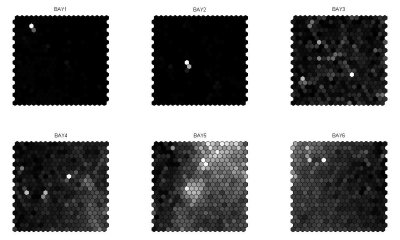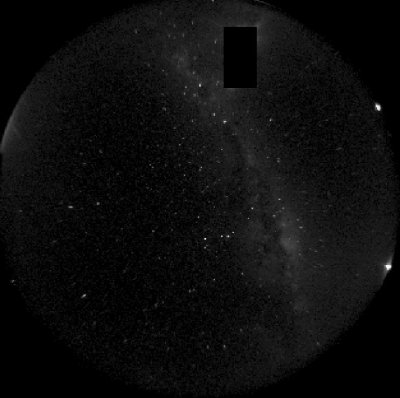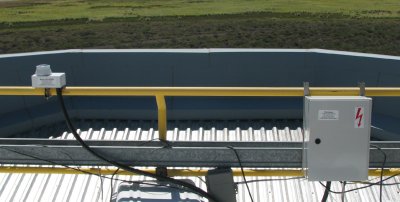|
Pierre Auger observatory became famous through the deployment of
1,600 water tanks over the Pampa
Amarilla in western Argentina.
But as important for cosmic rays detection are telescopes,
detecting ultra-violet light generated by high-energy particles
traveling through Earth's atmosphere by speeds exceeding speed of
light in the particular environment (not speed of light in vacuum,
ability to do this is reserved only for neutrinos these days :-). This
effect is called Cerenkov luminescence.

Example of background intensity from individual
photomultiplier arrays Photomultiplier tubes, detecting the UV luminescence, degrade when
exposed to intensive light. This is why a group from Palacky University
Olomouc designed a system based on G1 CCD cameras equipped with
fish-eye lenses, monitoring entire sky when the Cerenkov telescopes
are observing. When some source of bright light occurs within field of
view, particular photomultiplier tubes are covered to protect them
from degradation.

Example of all-sky image above the Coihueco telescope,
Argentina G1 cameras, rugged in the water-proof case, are mounted on the
Coihueco and Los Leones Cerenkov
light detection telescopes.

G1 all-sky camera in waterproof case and the associated
electronics box on the Los Leones observatory The whole application was developed by Research Center for Optics
of Palacky University
Olomouc. Images courtesy of Dusan Mandat.
|